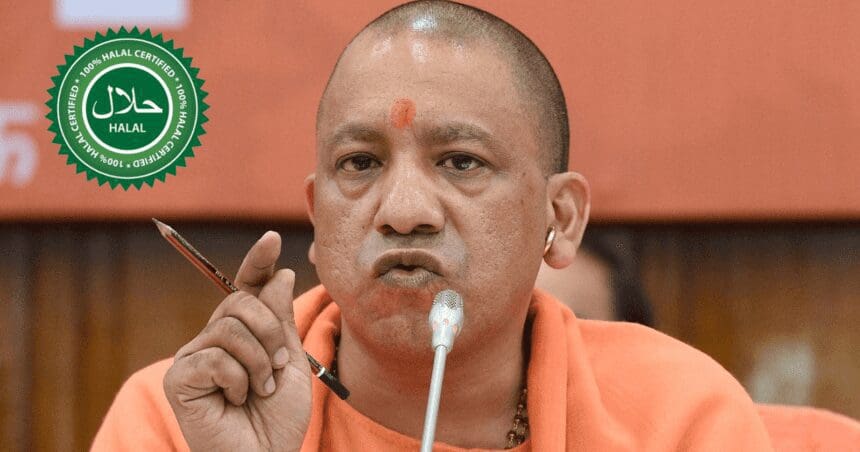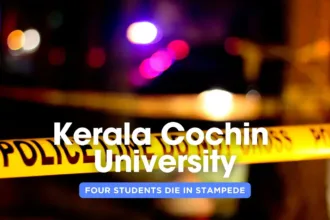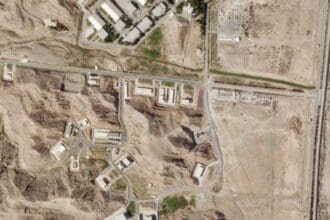Introduction
The Uttar Pradesh government, led by Chief Minister Yogi Adityanath, is contemplating stringent measures regarding the sale of halal-certified products following a recent FIR against several organizations for alleged certificate forgery.
Background of the Case

Lucknow police registered a case against companies accused of exploiting religious sentiments to boost sales through the provision of forged halal certificates.
Organizations Involved
The case includes prominent entities such as Halal India Private Limited, Chennai; Jamiat Ullema Hind Halal Trust, New Delhi; Halal Council of India, Mumbai; and Jamiat Ullema, Mumbai.
Also Read: The Railway Men: A Gripping Saga of Unwavering Courage 23
Allegations and Concerns
The complainant, Shailendra Kumar Sharma, raised concerns about a potential conspiracy to decrease sales of products lacking halal certification, suggesting an unfair advantage passed on to anti-social elements.
Legal Implications
The case involves charges under various sections of the IPC, including criminal conspiracy, promoting enmity between different groups, extortion, cheating, forgery, and statements conducing to public mischief.
#WATCH | Lucknow, UP: An FIR has been registered in Hazratganj Police Station against various companies issuing Halal Certification.
Shailesh Sharma, the complainant, says, “…There are four companies in Chennai, Mumbai, and Delhi that issue halal certificates… When we… pic.twitter.com/ZPBCso1MYF
— ANI UP/Uttarakhand (@ANINewsUP) November 18, 2023
Potential Impact on Communities
There is a concern about the impact of halal certification on different communities and potential polarization due to its alleged misuse.
Also Read: SpaceX Starship Launch: A Triumph in the Stars 23
Conspiracy or Unfair Advantage?
Allegations suggest a deliberate criminal conspiracy targeting specific communities and their products.
Concerns About Funding Terrorism
Sharma expressed worry about individuals amassing disproportionate profits and potentially channeling funds toward supporting terrorist organizations.
Sections Under Which the Case Has Been Registered
The FIR includes charges under sections 120B, 153A, 298, 384, 420, 467, 468, 471, and 505 of the IPC.
Also Read: Dubai’s Urban Waterscape: Navigating the Unexpected Floods and Stormy Conditions 23
Possible Statewide Ban on Halal Products
The government is considering a statewide ban on products sold with halal certificates to address the alleged misuse.
Public Reaction and Opinion
The case has sparked discussions among the public, with varied opinions on the necessity and implications of halal certification.
Government’s Stance and Spokesperson’s Statement
The government spokesperson hinted at a potential ban on products with halal certificates, pending further investigation.
Also Read: SS-W vs AS-W: Unveiling the Fantasy Gems for a Thrilling WBBL Clash 23
The Role of Religion in Product Certification
The complaint raises questions about the role of religion in product certification, especially for vegetarian items like oil, soap, toothpaste, and honey.
Future Implications and Discussions
The case prompts discussions on the future implications of such controversies and the need for clarity in product certification processes.
Also Read: Sam Altman OpenAI Crisis Deepens: Unraveling the Resignations and Ouster 23
FAQs
Q: What prompted the Uttar Pradesh government to consider a statewide ban on halal products? A: The government is contemplating a ban following an FIR against organizations accused of providing forged halal certificates, and exploiting religious sentiments.
Q: Which organizations are involved in the case? A: Entities like Halal India Private Limited, Chennai; Jamiat Ullema Hind Halal Trust, New Delhi; Halal Council of India, Mumbai; and Jamiat Ullema, Mumbai, are implicated.
Q: What are the charges in the FIR? A: Charges include criminal conspiracy, promoting enmity between groups, extortion, cheating, forgery, and statements conducing to public mischief under various IPC sections.
Q: How does the complainant view the issuance of halal certificates for vegetarian products? A: The complainant suggests a deliberate criminal conspiracy targeting specific communities and products, alleging an unfair advantage.
Q: Why is there concern about funds being channeled toward supporting terrorist organizations? A: The complainant expresses worry that individuals amassing profits from the alleged conspiracy might channel funds toward supporting terrorism.
Q: What is the government’s stance on the issue? A: The government is considering a ban on products with halal certificates pending further investigation, as mentioned by a government spokesperson.
Conclusion
The case raises questions about the misuse of halal certification and its potential impact on communities. The government’s response and future discussions will shape the outcome of this controversy. The allegations of forged halal certificates have triggered a legal and social discourse, emphasizing the importance of fair certification processes and their potential impact on communities.






